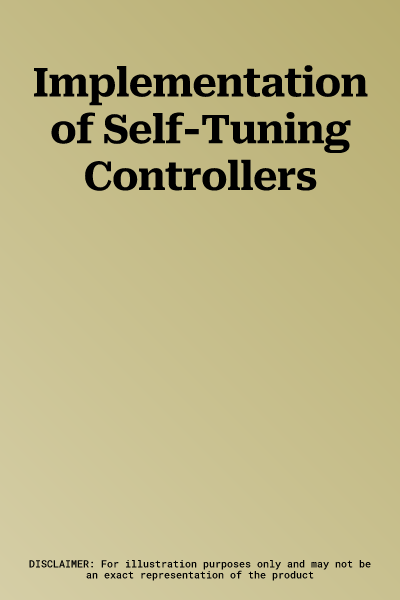This text is an extremely useful guide for those wishing to investigate
the application of self-tuning control systems. The contents have been
chosen in order to restrict the amount of theoretical detail to that
necessary for explanation purposes, whilst application examples and
programming suggestions are highlighted. The overall text is suitable
for those wishing to gain the flavour of adaptive control, although
those already familiar with selftuning techniques will find the problem
solutions discussed to be most attractive. Parameter estimation,
numerical solutions and software aspects are all considered at length,
while simplified procedures and predictive self-tuning schemes are shown
in terms of fundamental concepts.
The level of the book is such that practising control engineers and
postgraduate or final year control, engineering or cybernetics students
would find it most suitable. A certain amount of basic digital/sampled
data control systems terminology is assumed, although this does not mean
that the reader needs to be familiar with more mathematical ideas, such
as discrete transform methods or statistical theory. The text could be
used as the foundation of a Masters course module, particularly if an
emphasis is placed on the practical aspects of self-tuning control.
The book is an ideal source for those interested in self-tuning and
adaptive control, and contains many useful suggestions for future
trends, research directions and implementation/ application
possibilities.

